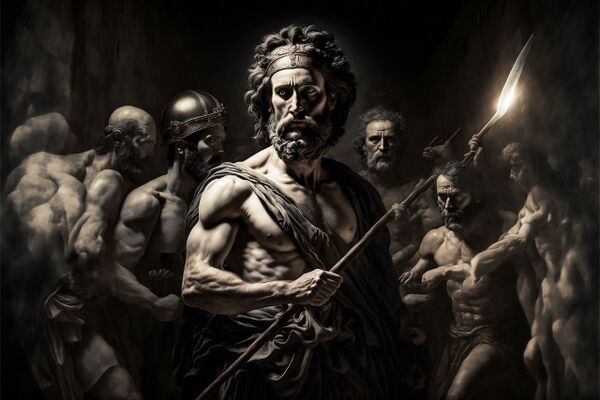Overview of Key Ideas
Epic poetry is a genre of literature that originated in ancient Greece and is characterized by the use of epic conventions such as an expansive scale, formal language, and an emphasis on the heroic ideal. The genre’s most famous works are Homer’s Iliad and Odyssey, which tell the stories of epic heroes such as Achilles and Odysseus, respectively.
Epic heroes are central to the genre and are typically characterized by their physical strength, exceptional courage, and adherence to a code of honor. They undertake arduous journeys, undertake perilous endeavors, and battle monsters, other humans, and even the gods themselves to secure their place in history and protect their honor. Heroes in epic poetry are often quasi-divine, and their accomplishments are revered by both the characters within the story and the audience.
Other important concepts in epic poetry include arete, excellence or virtue, as well as timē, honor or esteem. Aristeia, or the moment of greatest achievement for a hero, is also an essential characteristic of the genre. Additionally, the hero’s journey, popularized by Joseph Campbell, has become an important lens through which to view the genre and understand the development of the hero throughout the story.
The influence of epic poetry on Western culture is extensive, with the heroic ideal shaping everything from literature and film to politics and philosophy. Studying epic poetry not only provides insight into ancient Greek culture but also helps develop critical reading and analytical skills that are valuable in academic and professional pursuits.
Summary
- Epic poetry is a genre of literature originating in ancient Greece;
- Key works in the genre include Homer’s Iliad and Odyssey, but others have come after;
- Epic heroes are central to the genre and are typically characterized by physical strength, exceptional courage, and adherence to a code of honor;
- Heroes in epic poetry are frequently quasi-divine, and their accomplishments are revered by both characters and the audience;
- Important concepts in epic poetry include arete, timē, and aristeia;
- Arete refers to the idea of excellence or virtue, while timē refers to honor or esteem;
- Aristeia is the moment of greatest achievement for a hero;
- The hero’s journey, popularized by Joseph Campbell, is an important lens for viewing the genre and understanding the development of the hero throughout the story;
- The influence of epic poetry on Western culture is extensive, shaping everything from literature and film to politics and philosophy;
- Studying epic poetry can provide insight into ancient Greek culture and develop critical reading and analytical skills valuable in academic and professional pursuits.
